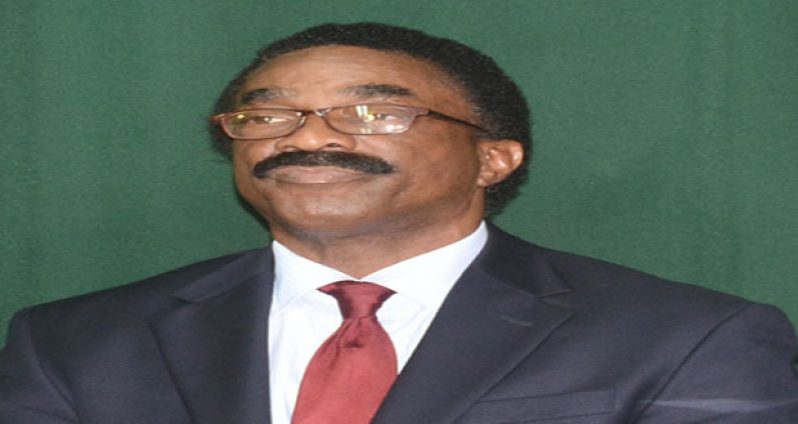The delayed opening of the Family Court lies directly in the bosom of the Chancellor of the Judiciary (ag) Justice Carl Singh, Attorney General, Basil Williams has said.
Williams made the comment during a news conference held at his office on Wednesday. “The Chancellor at a conference said he was fine-tuning the Family Court rules which he thought he would have been able to do in a month so that I could take it to Parliament, again over the weekend the Chancellor reiterated that they are still fine-tuning the rules,” The Attorney General told the media when asked for an update on the project.
Former Attorney General (AG) Anil Nandlall had recently blamed the new government for not operationalising the Family Court to which Williams reflected that when he was “shadow Attorney General he had always complained about the PPP administration’s failure to open the court. “All the time we heard excuses of furniture and some other pieces of furniture here and there, so I don’t know how the new government can be blamed for not operationalising the Family Court which they failed to do in all those years that they were in the government,” Williams had said.
Chancellor of the Judiciary (ag), Justice Carl Singh had recently said that the final touches are being made to the revised Rules of Law that will be used to govern the practices and procedures of the much anticipated Family Court. He said that currently, a panel comprising of five High Court Judges are tasked with reviewing and putting “finishing touches” to the revised laws. “They are nearing the end of this process… so I figured they will be finished and the revised laws will be ready,” he indicated.
The Chancellor explained that when the laws are completed then it will be handed over to the Attorney General for him to present to the National Assembly for approval. After almost five years since the building was completed and handed over to the previous Government, the opening and operationalisation of the Family Court remains in limbo. The upper flat of the building will accommodate the courtrooms, the judges’ chambers, and a children waiting facility, while the lower flat, where the inquiry is being held, will be the Family Court’s Registry.
Court back log
Meanwhile, on another issues, Williams told reported that government will be looking at the appointment of temporary judges to deal with the backlog of cases in the Supreme Court. “If we have four judges working for six months this would contribute to the ending of the backlog…the backlog could also be ended by the introduction of the new civil rules…” he noted. He explained that the new civil rule has a provision which will see a judge handling each case until it is ready for hearing. In this manner lengthy periods of time would not be wasted for the prosecution to deliver its case.
Under the Modernisation of Justice Administration System Programme issues on reducing the backlog of cases; strengthening the Judicial Service Commission; enhancing the skills and productivity of judges; High Court administration; rehabilitation and physical improvement of court rooms and improvement to civil and criminal law procedures among other areas had been looked at. Legal experts have agreed that the current complement of judges and magistrates cannot effectively dispose of the backlog of cases in the courts. Chancellor of the Judiciary (ag) Justice Carl Singh had said courtroom management is a critical area to consider when addressing the backlog. The Chancellor had noted that the lax approach by judges in granting adjournments as soon as they are requested has contributed to delays in a significant way. He said judges need to recognize that they are responsible for what takes place in their courts, and that it is entirely within their control to resist frequent applications for adjournments. He explained that the judge who grants an adjournment and has some free time as result, is still faced with the case when it comes up on the adjourned date. “So all it does is result in the deferral of what should have been done on a particular date and that is how the accumulation of adjourned cases is creating the backlog.”




.png)









